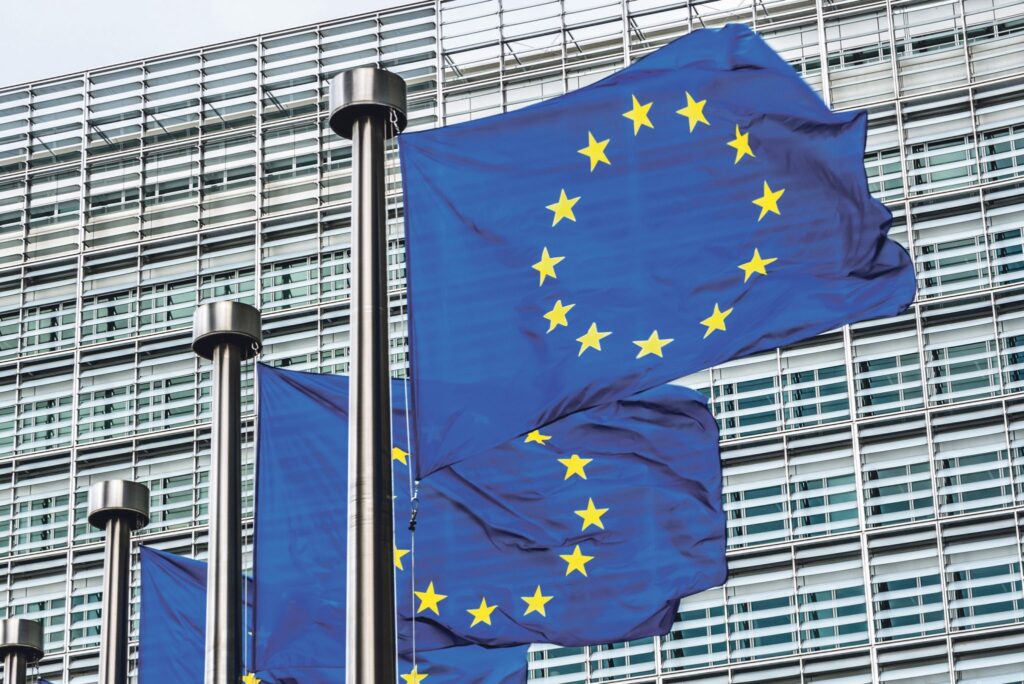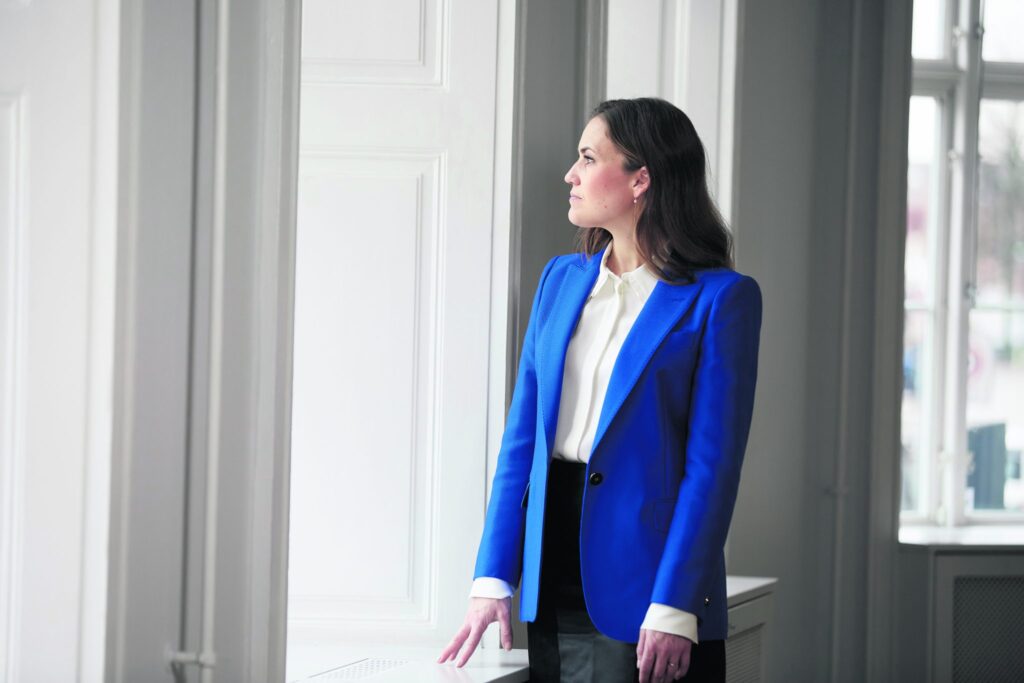Tech

Petter Stordalen:
The Future Of Nordic Hotels Is Green And Customized
Jens Kisker & Julie Brix
Customers across the globe increasingly expect a sustainable use of energy, water and textiles, as well as social and environmental responsibility throughout the supply chain.
Sustainability is also crucial to ensuring long-term business prospects and profitability. Current indicators suggest that consumer demands and regulatory requirements are changing the business landscape for hoteliers, pushing them towards responsibility and implementation of sustainable business practices.
In addition, the publicity created by marketing, recognition and awards can increase demand or even make new markets available to hotels. One potential future market may be the very one that is increasingly vocal about demanding sustainable practices. By promoting and adhering to sustainable practices, hotels can protect the very reason why guests come in the first place. The social and environmental practices appear altruistic to the general public, and this perception, coupled with positive PR and financial stability, can increase both demand, goodwill and, ultimately, the general asset value of the hotels.
Using attention to inform about values
There are many ways of working with PR in the hotel industry. And if the overall goal is to get the most attention and publicity in the media, there is probably no one better at doing so than Petter A. Stordalen. When it comes to new projects and events, he has a way of putting himself center stage with his personality and flamboyant style. In a classic example, when plans for a new hotel at Copenhagen’s old Post office were presented, Petter Stordalen appeared in a red and white blazer, mimicking the colours of Dannebrog, the Danish flag, and played a video of himself skiing in true James Bond style, partying late into the night and rappelling down the side of one of his hotels. It made the headlines in the Danish press, creating awareness. And it is part of the strategy.
As the owner of nearly 200 hotels with 16,500 employees, mainly in the Nordics, Stordalen is also an enthusiastic voice regarding sustainability and Nordic values.
At Nordic Choice, his hotel group, the defined core values are People, Planet and Profit. In that order. According to Petter Stordalen, it is no use simply to focus on profit. “You can expand and buy hotels, but you cannot copy culture,” he says.
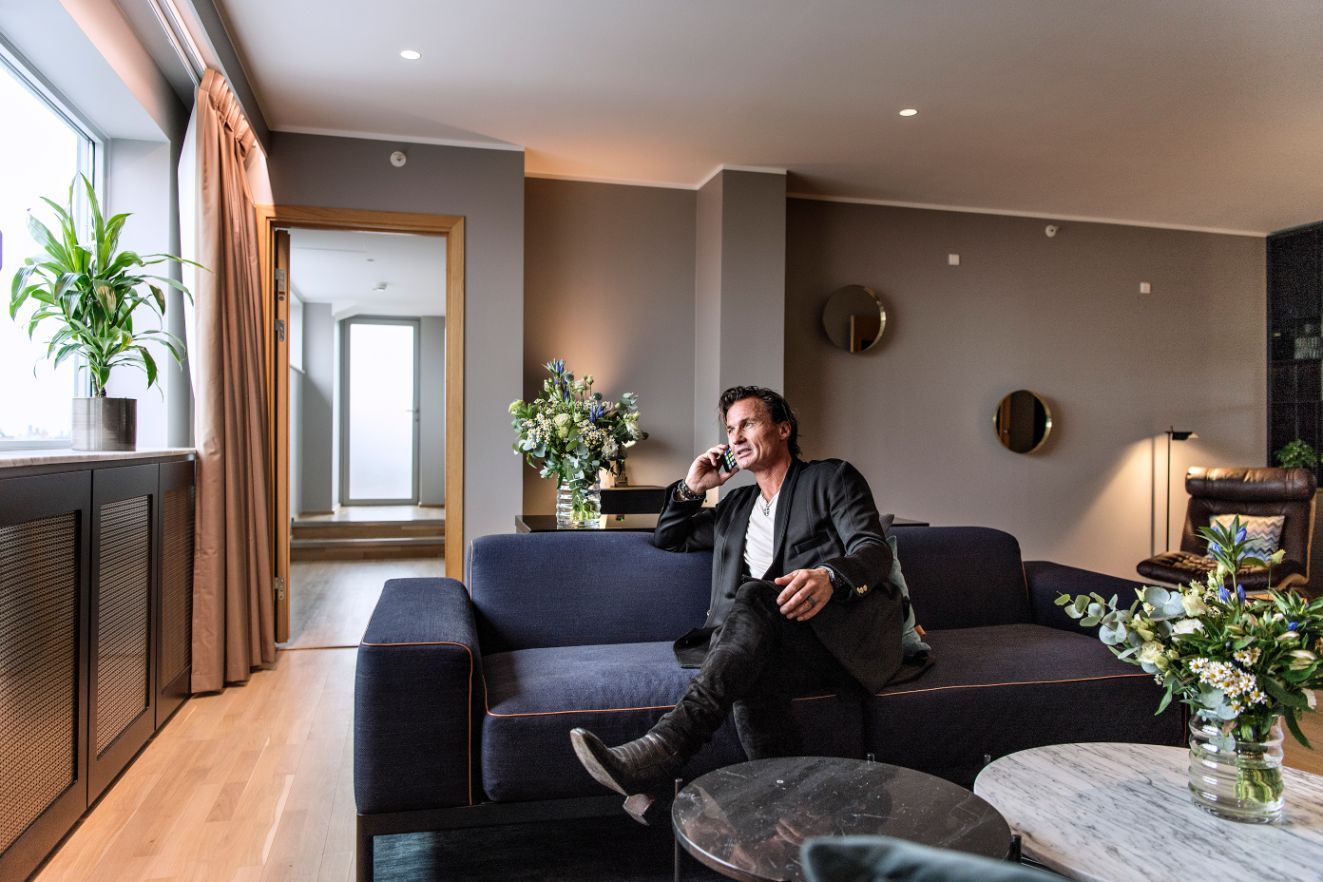
The power of SoMe
As more and more young people are starting to form strong attitudes towards and demands for sustainability, it is also important for hotels to keep in mind that today’s hotel guests can start a shitstorm within just a few minutes. “Today, social media plays a big role, and it will increase in the future. For my daughter and her generation, the news on social media spreads among thousands in a short time. That requires the hotels to think about sustainability and the environment in almost every aspect. It is no use that rainforest wood has been used for the beds. If it spreads through social media, it can have major consequences for the choice of hotel,” says Petter Stordalen.
And speaking of his daughter, Emilie A. Stordalen is someone who also knows the hotel industry well despite her young age. The 28-year-old is a Marketing Manager at the Clarion Hotel The Hub in Oslo and holds degrees in hotel business and strategy and marketing from the U.S. and London. When asked in an interview with Norwegian newspaper DN.no what her visions are for the hotels of the future, she saw many exciting possibilities:
“A lot will be about digitization and multi-branding. My generation has a completely different awareness of the choices we make. We have much more information and are better at dealing with this information. And the sustainability issue means a lot more to us. We (Nordic Choice) will create different brands based on those needs, “ she said. In particular, she sees a growing focus on the individual needs and preferences of hotel guests.
“At Nordic Choice we have 2 archetypes: Anders is 50. When he checks in, he wants to meet a person at the reception. He prefers going directly to his hotel room, eating his dinner at the hotel and maybe working out a little bit. His stay is typically associated with work.” Amanda is 25 years old. She does not want to meet anyone in person, and she prefers to check in via an app or other electronic device. “Today, 70% of our revenue is from “Anders”, and our entire hotel empire is built around him. But it is not him we should focus on in the future. And that’s where technology can help us, because we need to be able to meet both. Especially the younger customers will have demands and wishes for the technological offerings. All the power lies in the hands of the customers – that’s why digital insights are important too,” she explained in an interview for the podcast “Under Femton”.
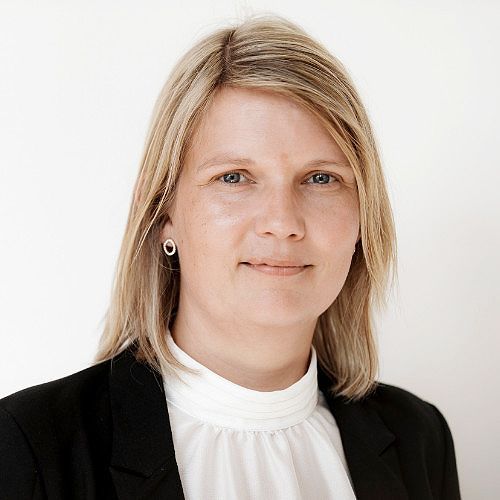
If you can’t beat them, join them
A prominent example of a disrupter in the hotel industry is Airbnb. Airbnb is an online marketplace which lets people rent out their properties or spare rooms to guests. Airbnb takes a 3% commission of every booking from hosts, and between 6% and 12% from guests. Since the company launched in 2009, it has grown from accommodating 21,000 guests a year to helping six million people a year find a place to stay, and currently lists a staggering 800,000 properties in 34,000 cities across 90 different countries.
At the Hotel Skt. Petri in Copenhagen (which is owned by Nordic Choice) they decided to “join them, if you can’t beat them”, so they now also offer their hotel rooms via the app. In doing so, the hotel is aiming to ensure its presence on a platform that reaches the same target audience. According to Emilie A. Stordalen, it is about reframing your offerings in a new setting. “It’s like offering a short-time stay in an apartment as well, just with the housekeeping included.”
She also thinks it is important to look at the possibilities instead of being afraid of disruption. “We are also thinking about the possibilities of using the hotel rooms in other terms. It could be as a “showroom” for various products. For example, an agreement could be made with IKEA regarding their beds. This way our guests could sleep and at the same time test IKEA’s beds in our hotel rooms instead of testing the bed for 5-10 minutes in the shop.”
Emilie Stordalen also thinks there is a new era for FOMO (Fear Of Missing Out). This could be called JOMO, the Joy Of Missing Out. “What about digital detox hotels? Where mobiles and tablets are collected on arrival? But it is incredibly difficult to be more specific about what the future will bring,” she suggested in the interview with DN.no.
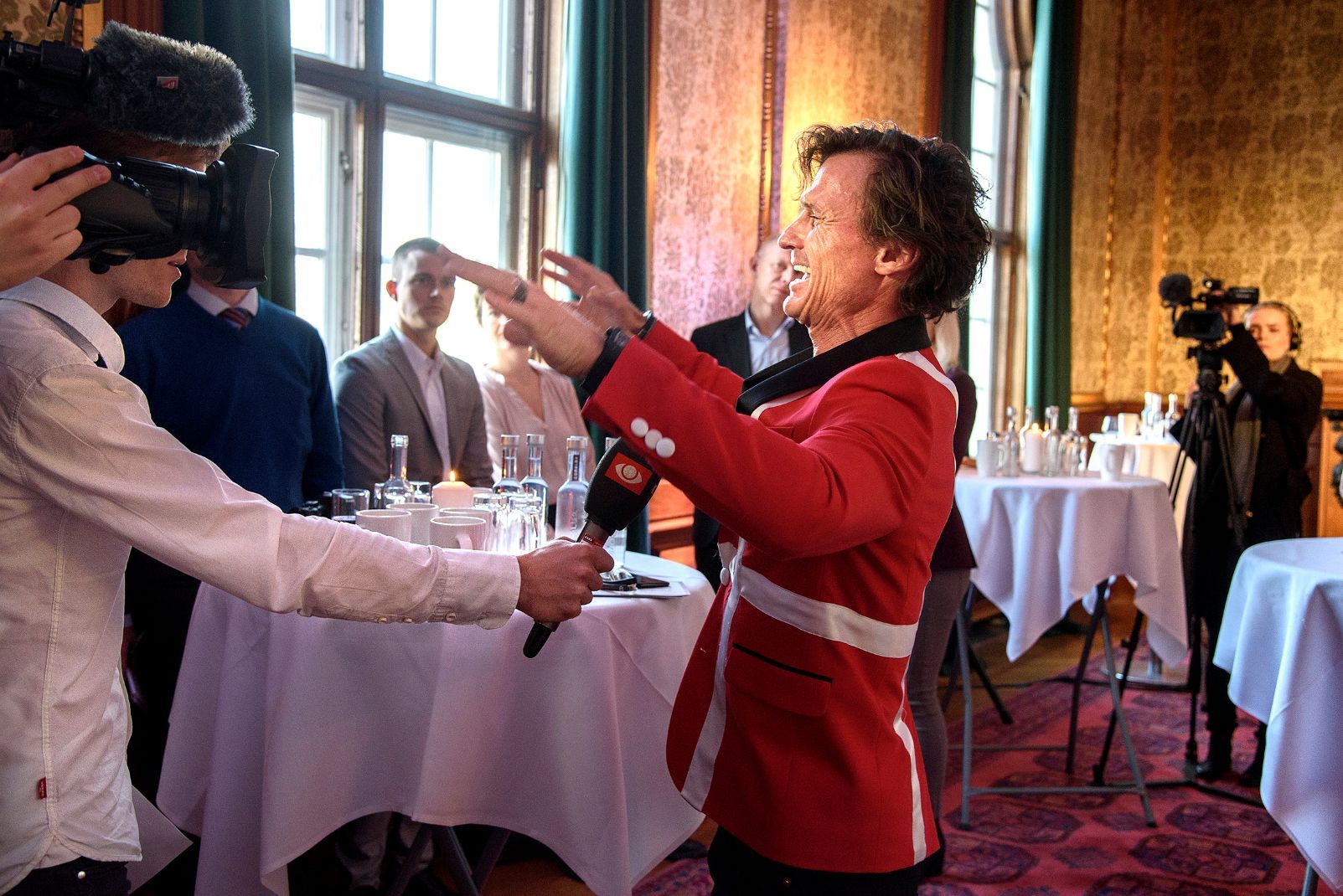
Sustainable hotels also attract employees
Though having a green profile is increasingly important to guests, it also adds value for the staff. The Green Key labeled hotel chain Comwell was recently surprised to see how great an effect the green transition has had on its employees’ job satisfaction and engagement in the company. Without intending to, they may have found an important key to retaining employees; something that the entire industry might benefit from and yet another important and strong argument for starting the green transition.
“When we receive job applications from potential employees, one of the arguments for wishing to work with us is our green profile. In our job satisfaction survey, the engagement score has also increased,” says Mai-Britt Jensen, HR Director at Comwell. And finally, the employees are also very positive about recommending us as an employer, she concludes.
Most read
ABOUT PETTER A. STORDALEN
Petter Stordalen, 57, recently generated yet more headlines when he became part of a group taking over the Ving Group of travel businesses after its previous owner, UK-based Thomas Cook, filed for bankruptcy.
He is best known, through his Strawberry investment group, as the flamboyant owner of the Nordic Choice Hotels chain. Stordalen also owns a large portfolio of commercial real estate, a 12.5% stake in the Hurtigruten passenger shipping line, 50% of a large public relations firm, Storm Communications, and he recently went into the publishing sector in Denmark with his newly started company, Strawberry Publishing, which has already picked up several best-selling authors from competitors in Norway and Sweden.
He began his career as a strawberry seller, hence the name Strawberry. Today, Nordic Choice Hotels is the largest hotel chain in the Nordics with 190 hotels and 16,500 employees in Scandinavia and some of the Baltic countries. In 2010, all Nordic Choice hotels in the Nordic countries were environmentally certified according to ISO 14001.
GREEN KEY
Hotels in the Nordics can benefit from a sustainable profile in several ways. One of the most common green labels is the Green Key. A Green Key certified hotel has to fulfil a number of criteria. Below are some of the typical improvements a Green Key hotel may be required to make.
Typical energy improvements:
- Changing to energy-saving light bulbs/LED
- Saving energy by using sensors and timers
- Using less energy by controlling heat and ventilation
- Using less and better air-conditioning
- Using solar, wind or other green energy
- Improving the insulation of the buildings and the windows
- Buying energy-saving electronic equipment
Other typical environmental improvements:
- Changing to water-conserving technology
- Reducing and recycling waste
- Promoting the use of public transportation
- Using fewer chemicals when cleaning and when maintaining green areas
- Educating staff on environmental issues
- Advising guests on environmental issues
- Buying organic and climate-friendly food and products
Source: Greenkey.dk


